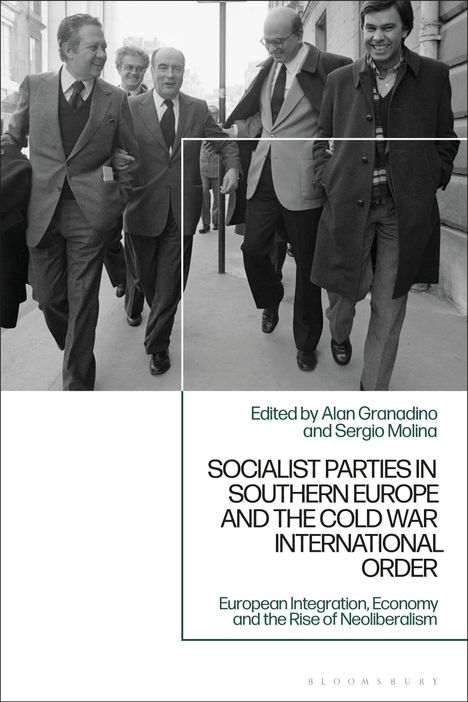Socialist Parties in Southern Europe and the Cold War International Order, Gebunden
Socialist Parties in Southern Europe and the Cold War International Order
- Ideological Evolution, Foreign Policy and Security
(soweit verfügbar beim Lieferanten)
- Herausgeber:
- Alan Granadino, Sergio Molina
- Verlag:
- Bloomsbury Academic, 02/2026
- Einband:
- Gebunden
- Sprache:
- Englisch
- ISBN-13:
- 9781350546653
- Artikelnummer:
- 12297163
- Umfang:
- 240 Seiten
- Gewicht:
- 454 g
- Maße:
- 28 x 28 mm
- Stärke:
- 28 mm
- Erscheinungstermin:
- 5.2.2026
- Hinweis
-
Achtung: Artikel ist nicht in deutscher Sprache!
Klappentext
This open access edited collection sheds new light on how socialist parties envisioned, addressed and contributed to the transformation of the international and economic order from the 1970s to the 1990s.
Social democracy has been said to be in crisis for decades, with multiple scholars claiming that its end is at hand in these uncertain times. This book interrogates this view, pointing to claims that social democracy has been, and is, successfully adapting to the ever-evolving context in which it exists. Both arguments point to the period between the 1970s and the 1990s as the watershed decades in which the roots of social democracy's decline and / or transformation are to be found.
Exploring social democracy's place in the international order during the Cold War, this book studies the evolution of socialist parties including British Labour, German Social Democrats, Greece's PASOK and others, to understand their contribution to this transformation. Exploring whether social democratic ideology was put on the defensive because of the international economic crises of 1973 and 1979, it argues that the source of this ideological crisis was also political and intellectual, as neo-liberal thinkers challenged core social democratic values by attacking the weaknesses in the premises of Keynesian welfare states. As a result, a new kind of social democracy emerged, one that sought to cope with the new international post-Cold War order; globalization, slow economic growth, and the shrinking of the working class.
The ebook editions of this book are available open access under a CC BY-NC-ND 4.0 licence on bloomsburycollections. com. Open access was funded by Universidad Complutense de Madrid, Universidad de Castilla-La Mancha, Institut François Mitterrand and Fundación Felipe González.

